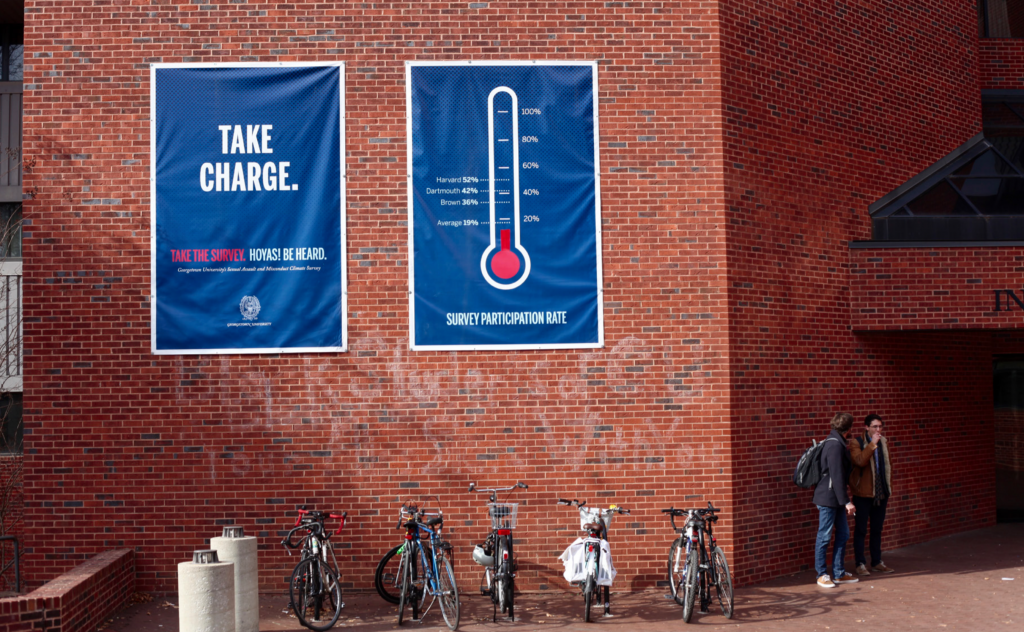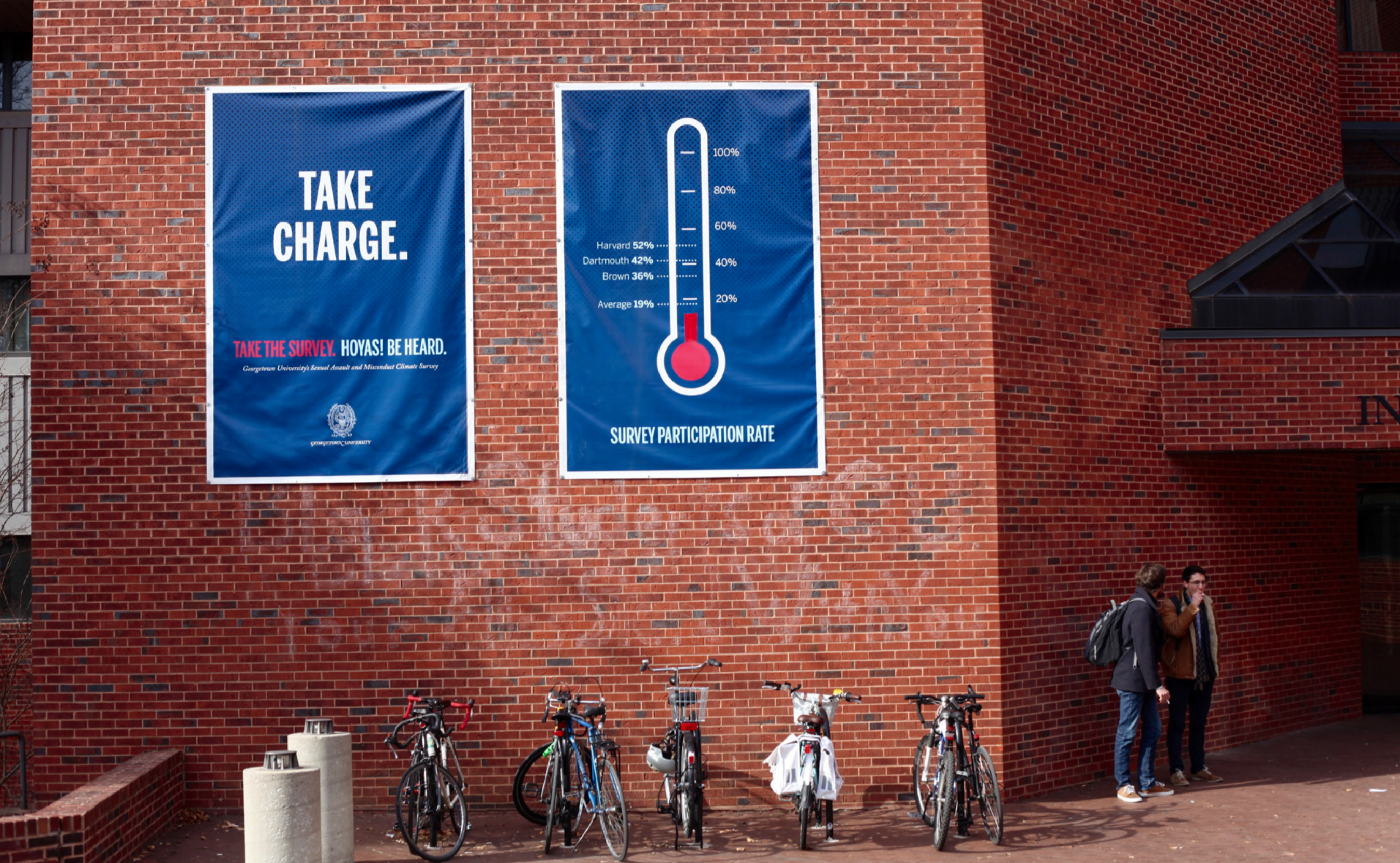On Jan. 14, Georgetown University launched its first-ever Sexual Assault and Misconduct Climate Survey, open to all degree-seeking undergraduate and graduate students at the University. This confidential survey will remain accessible for student participation until Feb 6. This new effort taken by the University stems from both student requests and the campus sexual assault guidelines issued by the White House and the Department of Education. The survey itself was developed by the Association of American Universities (AAU) during the spring of this past year and is a modified version — customized for Georgetown — of the AAU’s survey administered to 27 universities last year.
This Editorial Board strongly supports this initiative and encourages all students to take the survey before it closes. Sexual assault prevention efforts are often impeded by a lack of information and data. The majority of incidences of sexual assault are unreported, and many reported cases are not pursued to fruition. The goal of this project at Georgetown is to create a survey which provides accurate information and allows students to feel safe; an “escape” button is even placed on the survey, allowing participants to quickly exit it at any point.


Brooke Dudek
This effective survey offers a valuable channel of communication and study between students and the University to prevent sexual assault at Georgetown.
University officials have made it clear that this effort will not stand alone. The data resulting from this survey will make for a promising step to better understand the problem of campus sexual assault, and it will be coupled with the refined continuation of existing programs. At a briefing regarding the survey on Jan. 13, Rosemary Kilkenny stated that the Climate Survey Working Group (CSWG), created to develop this survey, will remain active going forward. In addition, Vice President for Student Affairs Todd Olson discussed an expansion of outreach programs toward graduate and professional students and the strengthening of bystander intervention training programs through the information gathered in the survey.
The University has taken up an aggressive marketing campaign for the survey to ensure large-scale participation, most notably a large thermometer banner hung in Red Square to challenge students to best the participation levels recorded at other universities. Although this Editorial Board supports all of the proactive efforts that the University has taken, certain methods, specifically financial encouragement for student participation, have been somewhat poorly relayed to the student body. A select group of students, numbering between 4,000 and 4,500, are to receive $10 gift card for completion of the survey. All other participants will be entered into a raffle for the chance to win either a $500 gift card or one of five $100 gift cards. The $10 gift card recipients were chosen as a sample group, but the disparity between awards for participation can be confusing and perhaps even discourage participation among those outside of the selected 4,000 to 4,500. Though financial incentives such as this are considered standard procedure and are in line with best practices for surveys of this nature, their communication to students has been somewhat unclear.
Despite this miscommunication in student outreach, the other aspects of the University’s campaign appear to be effective in encouraging participation. University students are largely to thank for the marketing and customization of the survey for the needs of Georgetown students. Notably, specific questions are tailored toward finding out which campus resources are most used by those who are survivors of sexual assault and gauging student awareness of existing resources, including Health Education Services, CAPS, and the LGBTQ Resource Center.
Understanding is the most beneficial means of progress for ending sexual assault at Georgetown and on all college campuses. The data, set to be released to Working Groups and then the student body in May 2016, is a promising step for the University. This investigation, deeply ingrained in active communication with the student body, reflects the University’s strong commitment to sexual assault policy reform and the protection of survivors’ rights shown by the Memorandum of Understanding (MOU) which was approved this past September. Assessments of the campus climate on these issues are to be repeated every other year to ensure the upkeep of an open understanding between University students and administrators with the ultimate goal of sexual assault prevention. Considering the gravity of this issue, relevant to all college campuses, this Editorial Board proudly embraces the efforts of Georgetown University and the students who have worked and continue to work fervently to ensure the safety of all students.





